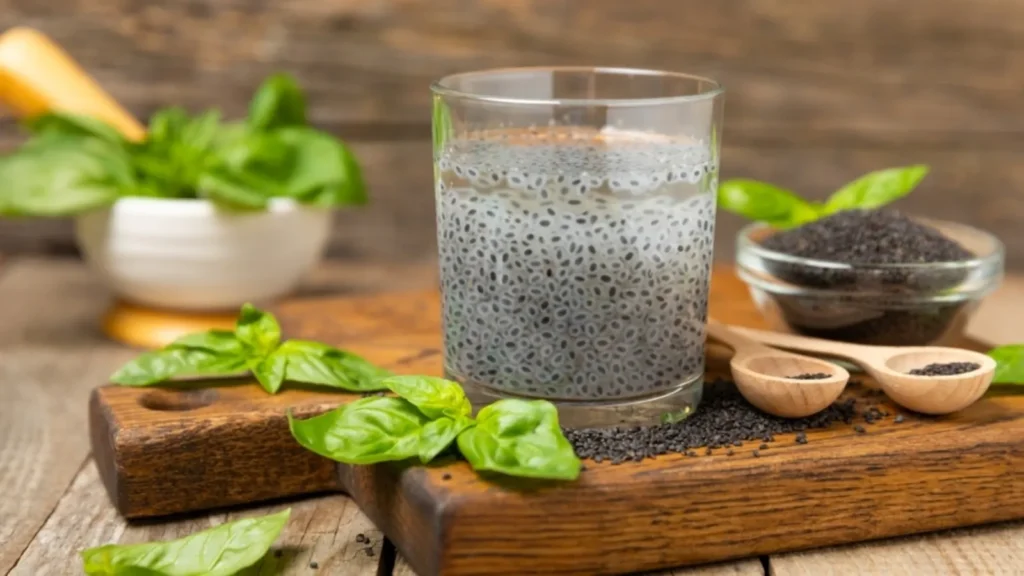
Basil seeds, also known as tukmaria or sabja seeds, have been cherished for centuries in various cultures, especially in South Asia and the Middle East. These tiny black seeds pack a powerful punch of nutrition and offer numerous health benefits. Known for their cooling properties and versatility, basil seeds are a popular ingredient in many traditional drinks and desserts. For those curious about tukh malanga price, this article explores everything from the nutritional advantages of basil seeds to how market prices fluctuate, helping consumers make informed choices.
What Are Basil Seeds?
Basil seeds come from the sweet basil plant (Ocimum basilicum), a herb widely used in cooking. Unlike chia seeds, which belong to a different plant species, basil seeds swell up when soaked in water, developing a gelatinous coating. This unique texture makes them popular in beverages like falooda, sherbets, and health drinks.
Historically, basil seeds have been used in Ayurvedic and traditional Chinese medicine. Their ability to aid digestion, cool the body, and support weight loss has made them a household staple for health-conscious individuals.
Nutritional Profile of Basil Seeds
Each serving of basil seeds contains an impressive amount of fiber, protein, essential minerals, and antioxidants. These components contribute to several health benefits:
Key Nutrients in Basil Seeds
- Dietary Fiber: Rich in soluble fiber that helps regulate blood sugar levels and promotes healthy digestion.
- Omega-3 Fatty Acids: Provides a good plant-based source essential for heart health and reducing inflammation.
- Calcium and Magnesium: Important for bone health and muscle function.
- Antioxidants: Contains polyphenols that combat oxidative stress.
Due to this nutritional composition, incorporating basil seeds into your diet can support overall well-being, improve digestion, and potentially aid in weight management.
Health Benefits of Basil Seeds
Supports Digestive Health
Basil seeds absorb water and expand in the stomach, creating a feeling of fullness and helping to regulate bowel movements. This can prevent constipation and promote regularity.
Helps in Weight Loss
By promoting satiety and reducing appetite, basil seeds may assist in controlling calorie intake. Their high fiber content slows down digestion and keeps blood sugar levels stable, which helps in managing cravings.
Regulates Blood Sugar
For individuals with diabetes or prediabetes, basil seeds might help in managing blood sugar spikes after meals, thanks to their ability to slow carbohydrate absorption.
Cooling Effect
During hot summers, consuming basil seeds soaked in water or milk provides a cooling sensation, which helps reduce body heat and soothe inflammation.
Hydration and Detoxification
Basil seeds can aid in detoxifying the body and keeping you hydrated, especially when consumed with water or infused beverages.
Popular Uses of Basil Seeds
In Beverages
Commonly soaked and added to drinks like falooda, lemonades, and smoothies for texture and nutrition.
In Desserts
Used in puddings, ice creams, and traditional sweets to add a unique mouthfeel.
As Toppings
Sprinkled on yogurt, salads, or breakfast bowls for added texture and health benefits.
Understanding Tukh Malanga Price Trends
For consumers and vendors, tukh malanga price is an important consideration when purchasing basil seeds. Prices vary depending on factors such as quality, season, region, and demand. Basil seeds sourced from organic farms or with certifications generally command higher prices due to their purity and superior quality.
Factors Affecting Tukh Malanga Price
- Seasonal Demand: Prices often rise during hot months when demand for cooling seeds increases.
- Quality and Purity: Organic and certified seeds cost more.
- Packaging and Brand: Trusted brands with proper packaging charge premium prices.
- Bulk Purchases: Buying in larger quantities can lower the per-unit cost.
Understanding these factors helps buyers get value for money and avoid overpriced products.
Tips for Buying Quality Basil Seeds
- Look for Clean Seeds: Avoid seeds mixed with dirt, stones, or other impurities.
- Check Soaking Ability: High-quality basil seeds swell quickly and evenly when soaked.
- Source Transparency: Choose brands that provide information about origin and cultivation practices.
- Compare Prices: Knowing the current tukh malanga price helps avoid paying more than necessary.
How to Use Basil Seeds at Home
Simple Soaking Method
- Rinse about one tablespoon of basil seeds under cold water.
- Soak the seeds in half a cup of water for 10-15 minutes.
- Once they swell and become gelatinous, add them to drinks or desserts.
Culinary Ideas
- Add soaked basil seeds to smoothies for extra fiber.
- Use in traditional drinks like falooda or lemon sherbet.
- Sprinkle on yogurt or cereal for a nutritious crunch.
Environmental and Economic Impact of Basil Seed Cultivation
Cultivating basil seeds requires moderate water and care but is generally eco-friendly compared to many commercial crops. Farmers benefit from growing this crop because of rising consumer interest and the steady demand reflected in the tukh malanga price.
Supporting local farmers by purchasing basil seeds from trusted sources can promote sustainable agriculture and improve livelihoods in rural communities.
Comparing Basil Seeds with Other Similar Seeds
While chia seeds are often compared with basil seeds, there are differences worth noting:
- Basil seeds swell faster and have a slightly different texture.
- Nutritional profiles overlap but vary slightly in omega-3 and antioxidant content.
- Basil seeds are more commonly used in traditional South Asian recipes, whereas chia seeds have gained popularity in Western health foods.
Both have unique benefits, and including a variety in your diet can provide a broader range of nutrients.
Conclusion
Basil seeds offer an incredible combination of health benefits, culinary uses, and cultural significance. Awareness of tukh malanga price ensures you get good quality at a fair rate, enabling you to enjoy these nutritious seeds regularly. Whether you’re seeking a natural remedy to aid digestion, a refreshing summer drink ingredient, or a superfood addition to your meals, basil seeds are worth exploring.
Have you tried incorporating basil seeds into your daily routine? What are your favorite recipes or tips for using them? Feel free to share your experience or ask any questions about basil seeds and their market trends!





